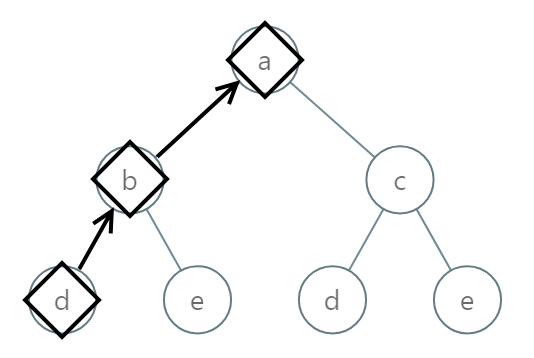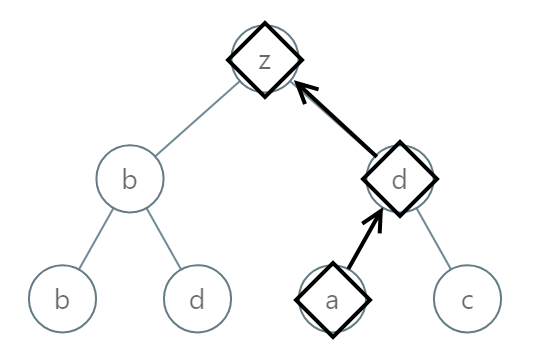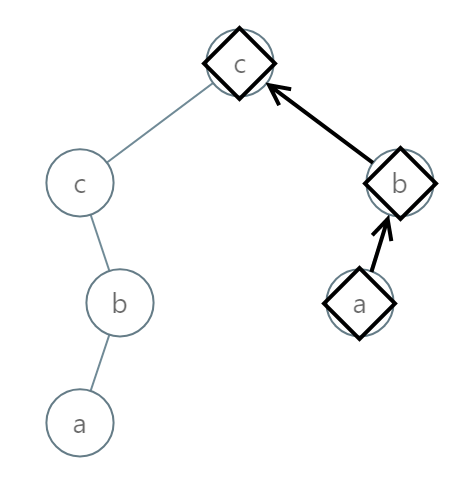Smallest String Starting From Leaf
Given therootof a binary tree, each node has a value from0to25representing the letters'a'to'z': a value of0represents'a', a value of1represents'b', and so on.
Find the lexicographically smallest string that starts at a leaf of this tree and ends at the root.
(As a reminder, any shorter prefix of a string is lexicographically smaller: for example,"ab"is lexicographically smaller than"aba". A leaf of a node is a node that has no children.)
Example 1:

Example 2:

Example 3:

Note:
分析
这里path就是后缀,没有左右子树了就可以更新res
Last updated